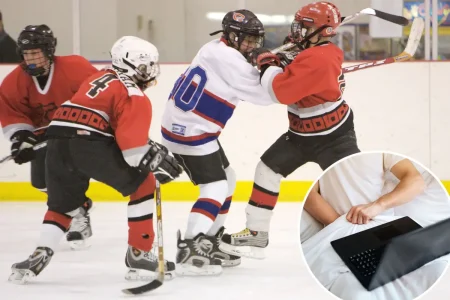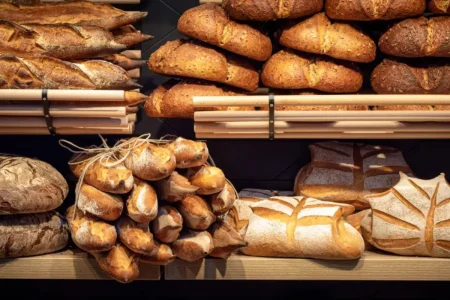The Super Bowl, a cultural phenomenon in the United States, draws millions of viewers each year. While the game itself remains a central focus for some, a recent survey reveals a shifting landscape where the culinary experience rivals, if not surpasses, the sporting event in importance for many Americans. Conducted by Talker Research on behalf of TUMS, the survey of 2,000 U.S. adults over 21 sheds light on the crucial role food plays in the Super Bowl viewing experience, highlighting preferred snacks, anticipated digestive woes, and the lengths to which people go to curate the perfect game-day spread. Surprisingly, less than half of the respondents (48%) prioritize which team wins, demonstrating a broader trend where the social and gastronomic aspects of the event hold significant sway.
The survey underscores the dominance of food in the Super Bowl celebration. For one in four respondents, the culinary offerings eclipse the game itself in terms of interest, while over half (54%) believe the food spread can make or break the entire viewing experience. This emphasis on food transcends other traditional elements of the Super Bowl broadcast. The culinary delights prove more enticing than the often-anticipated commercials (38%) and even the halftime show (47%), further solidifying the centrality of food to the occasion. This highlights a shift in focus where the Super Bowl has become as much a food-centric celebration as a sporting event.
Preparing for the Super Bowl is a serious undertaking for many, with the survey revealing meticulous planning around the menu. Six in ten respondents anticipate either hosting or attending a Super Bowl party, and for those hosting, over half plan their menu at least a month in advance. This forward planning underscores the importance of food in the Super Bowl tradition and suggests a desire to create a memorable and satisfying culinary experience for guests. The ideal menu, according to respondents, features a strategic blend of sweet and savory options, with popular choices including buffalo or hot wings (49%), barbecue (37%), seven-layer dip (36%), nachos (30%), cookies (25%), and potato chips (24%). This diverse range of snacks caters to a variety of palates and ensures there’s something for everyone to enjoy.
Delving deeper into specific food categories, the survey identified clear favorites among Super Bowl viewers. In the spicy category, wings reign supreme (50%), followed by jalapeño poppers (29%) and chili (24%). When constructing the ultimate Super Bowl plate, barbecue (34%) takes the top spot, accompanied by wings (33%), seven-layer dip (24%), and brownies (22%). Other popular choices include chicken tenders or nuggets (22%), nachos (21%), and pizza (20%). These findings provide valuable insights into the most sought-after game-day snacks, offering a glimpse into the collective culinary preferences of Super Bowl viewers.
However, the indulgence in these delectable treats often comes with a price. The survey reveals that the constant snacking during Super Bowl games can lead to uncomfortable digestive issues, including heartburn (22%), indigestion (16%), and upset stomach (17%). The culprits behind these digestive woes are often the spicier and richer game-day staples, such as buffalo wings (37%), buffalo chicken dip (25%), barbecue (24%), chili (23%), and jalapeño poppers (22%). This presents a dilemma for many viewers, torn between enjoying their favorite snacks and the potential for digestive discomfort.
Despite the potential for digestive distress, the allure of these game-day favorites proves difficult to resist. While 43% of respondents would avoid these trigger foods, a nearly equal percentage (44%) admit they would indulge regardless of the potential consequences. This highlights the strong connection between food and the Super Bowl experience, with many willing to risk digestive discomfort for the sake of culinary enjoyment. The survey also revealed the prevalence of game-day heartburn, with nearly one in four experiencing it from their Super Bowl snacks. Furthermore, nearly a third of respondents expect their hosts to have antacids on hand, while another quarter take the precaution of keeping antacids readily available themselves. Interestingly, it’s not just the food that causes heartburn. One in seven respondents admits to experiencing heartburn from their team’s poor performance, while a similar percentage attribute it to the anxiety of needing a bathroom break during a crucial moment in the game. This highlights the emotional intensity of the Super Bowl experience and its potential impact on physical well-being.















